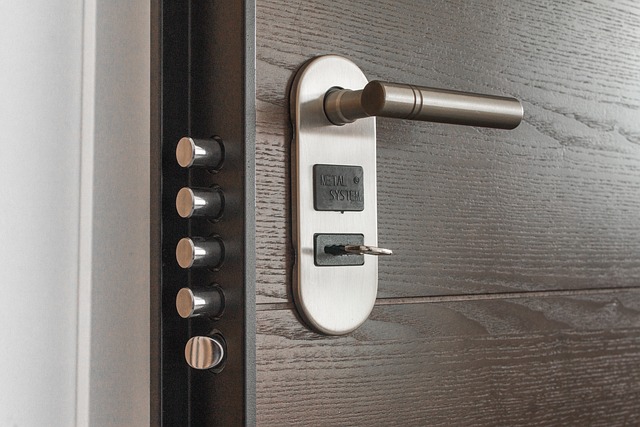The UK has a lot of good qualities, but the weather is definitely not among them. With scourging heat during the summer, wet and highly unpleasant cold in the winter and high humidity all year round, it truly is not the perfect place to be an inanimate object outside, especially if you are made out of iron.
Sadly, as it happens, all our external locks are subjected to this cruel fate. They get to endure extreme weather first-hand and often do it without even getting some basic maintenance. No wonder their life is so much shorter compared to their brethren from across the Channel. But how exactly do temperatures affect our locks? We asked this exact question to our friends at Fantastic Services, one of the leading locksmith experts in the UK, and here is what they shared.
How Does Hot Weather Affect Your Door Locks?
If you think that everything is just as fond of warm weather as you are, shame on you. As a matter of fact, most objects can’t shed their top layer of clothes or take a refreshing shower whenever they want. Moreover, as most of them are inanimate and can’t hide in the shades at will, the heat radiation seriously damages their structure, making them much more fragile due to overheating. Physics may be cruel but accurate 100% of the time. So whenever an object gets heated enough, it starts expanding. This became evident during this year’s several weeks of the scorching heat wave. For example, many plastic doors expanded significantly during that time to the point where they ultimately became useless. They got stuck in their frames and could not close properly once opened.
However, as much as the plastic suffered from the heatwave, it was many times worse for metal and uPVC components. Those, unfortunately, are typically the locks. Metal locks react quite negatively to extremely hot temperatures, especially when they spend hours under the sun. The heat builds in quite fast, and it expands significantly. Moreover, the lube inside is drying extremely fast. Unfortunately, this results in the lock being unable to perform its duties or, to put it simply, it gets stuck. And while reapplying lube will slow the process, when the metal has expanded, there is really nothing you can do except wait for it to cool down. It may be inconvenient, but alternatives (like spraying it with water to cool it down faster) will significantly reduce the lock’s lifetime.
The best solution is to protect your lock from overheating by covering it from the sun.
How Does Cold Weather Affect Your Door Locks?
Cold weather is no better for your locks than extreme heat. The lubricant inside the lock mechanism can get harder or even freeze during winter, especially during the coldest months. This is a problem since it’s precisely the lube’s work to ensure your locks work properly and smoothly. When the lube freezes, it can no longer lubricate the mechanism parts, which then start to grind with each other. The screeching sound is the least of your problems at that point, as it is actually metal-on-metal action, which peels off small particles each time you use the lock. At worst, this may break the lock altogether. A not-so-worse scenario is for the lock to get slightly damaged to the point where the moisture formed due to condensation will form rust. This will ultimately end up the same way – your lock will stop functioning. Moreover, if the lock is glazed by the sun during the day while at night it’s subjected to extreme colds, this will result in condensation inside the lock, which will freeze over during the night and render your lock inoperable.
The solution is only one. First, try to keep your lock protected from the elements as much as possible. Then, if that’s impossible, just make sure to take good care of it during extreme weather. This means lube it more frequently and gently heat the lock with your breath before using it. It’s not ideal, but it’s better than nothing.
How Do Weather Changes Affect Keyless Locks?
Seeing how heat and cold affect the mechanics of your lock, you might think that investing in a keyless lock may be the answer. After all, without a keyhole, the whole system may be sealed from external elements, and you have a point there. That’s why many businesses go for the keyless option, which has the added benefit of limited access options for employees. On the other hand, for homeowners, it can be a great way to give remote access to guests, family members, repair personnel, or even delivery guys.
Despite this, they are not entirely unaffected by the external weather. The temperatures outside can have several significant effects on the lock.
Battery Drain
Just like your smartphone battery dies faster when it’s cold, so does the battery of the electrical keylock. Naturally, this effect is taken to the extreme when there is a prolonged period of harsh weather. Luckily, that’s not something that will damage the lock long-term, but it is pretty frustrating having to change batteries every month or so just because it’s cold outside. Moreover, the battery may drain at the worst moment, so you must keep this in mind when deciding on a keyless lock.
Mechanical Issues
When talking about keyless locks, you need to understand that while there is no keyhole anywhere, the latch is all the same (mostly), so it still will have the same mechanical issues, which extreme weather causes to regular locks.
Jammed Buttons
If your keyless lock uses a keypad instead, you will find yourself just as vulnerable to humidity and cold weather as if you had a keyhole. This is because moisture will go inside the buttons, which will freeze overnight, resulting in jammed buttons.
All of this can be avoided with some simple maintenance procedures.
How to Protect Your Locks from Weather Changes
The least you can do is take good care of your doors and locks. This means regularly using WD-40 on the hardware and moving components, and even using silicone lube on your locks. This will effectively protect them from rust, one of metal locks’ biggest enemies.
You should also consider what type of door you use and its materials. Wood is definitely less than ideal, as it soaks in water, which translates to the door’s hardware, resulting in rust. Of course, if you paint it regularly and do other maintenance, this will help, but it only takes one severe storm to set you back.
Instead, what you should actually do is use high-end lubricants. Also, try to seal your lock with some car wax and protect it from the elements by shading it under some rubber or another cover.
Conclusion
The weather outside is frightening, especially for your locks. Extreme heat and colds can take years out of its life if you don’t take good care of it. Of course, you can try dismissing the problem with keyless solutions, but you will introduce new issues. All that can be done is to take good care of your outside locks and protect them from the external weather as much as possible. Fortunately, that’s not as hard as it sounds.












